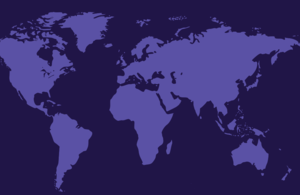Charity regulator issues alert to overseas aid charities as “more needs to be done” in preventing exploitation and abuse
The Charity Commission has issued a formal regulatory alert urging international aid charities to address remaining weaknesses in keeping people safe.

The Commission says that while the international development sector has made significant progress on safeguarding since 2018, further work is needed to ensure “transformative change” for those in receipt of aid.
The alert, issued to over 5,000 charities working overseas, highlights ways in which charities can strengthen their efforts to keep people safe. These include making it easier for recipients of aid to report allegations of misconduct and abuse and taking a ‘survivor-centred’ approach to handling incidents of harm.
The measures were drawn up after an analysis of recent serious incident reports submitted to the Commission identified specific areas of weaknesses or risk around safeguarding in international aid charities. They reflect existing best practice across the sector.
The Commission reminds charities that effective safeguarding is “never complete” and that all charities, in the aid sector and beyond, must be alert to the risk of sexual harassment, exploitation and abuse and should foster a culture committed to rooting it out.
Helen Stephenson, chief executive of the Charity Commission, said:
No-one should ever be exposed to abuse or exploitation, but when people are harmed while in the care of a charity, it undermines the very meaning of charity. The public expect charities to keep the people they care for safe from harm, and to place the highest priority on the needs and interests of vulnerable people.
I know that many international aid charities, doing vital work in challenging environments, have worked hard to improve their safeguarding practices over recent years. But we continue to see cases of harm perpetrated by people in positions of power in charities working overseas.
More needs to be done. Leaders of international aid charities need to ensure they have the systems and structures in place that prevent and root out harmful behaviour and empower victims and survivors to raise concerns. But systems alone are never enough – they need to be underpinned by leaders who place the highest priority on keeping people safe. There is simply no room for complacency.
As well as launching timely investigations into allegations, and acting quickly when incidents occur, the alert recommends that charities consider:
- Joining the Misconduct Disclosure Scheme to help protect against individuals who pose a risk.
- Giving victims and survivors, and their families and friends, a safe means to report concerns and complaints.
- Designing reporting mechanisms that are sensitive to the local context.
- Developing a survivor-centred approach to safeguarding that reflects the range of potential harms faced and considers possible victim and survivor support services from programme/project conception.
- Clearly communicating what support is available to victims and survivors and how it is accessed.
Since 2018, the Commission has worked closely with government, sector bodies such as Bond and individual charities to help improve the sector’s ability to keep people – notably those in receipt of aid overseas – safe from harm. This alert continues that approach.
The regulator has seen increases in serious incident reports on safeguarding matters by charities, indicating improved reporting and complaint mechanisms. In 2019-20 the Commission received 5,730 reports of serious incidents, of which 3,411 related to safeguarding, a nearly 40% increase on the previous year (3,895 and 2,504 respectively).
Ends
Notes to editors:
Press office
Email [email protected]
Out of hours press office contact number: 07785 748787
- The Charity Commission is the independent, non-ministerial government department that registers and regulates charities in England and Wales. Its purpose is to ensure charity can thrive and inspire trust so that people can improve lives and strengthen society.
- The Commission indicated its intention to review its casework and share lessons with the sector as part of the International Development Committee (IDC) inquiry into sexual exploitation in the aid sector, which reported in January of this year.
- Over the past year, the Commission has been monitoring emerging issues relating to charities operating in the DRC. This engagement forms part of standard regulatory oversight.
- In February the Commission lifted statutory supervision of Oxfam GB, after the charity significantly strengthened its approaches.